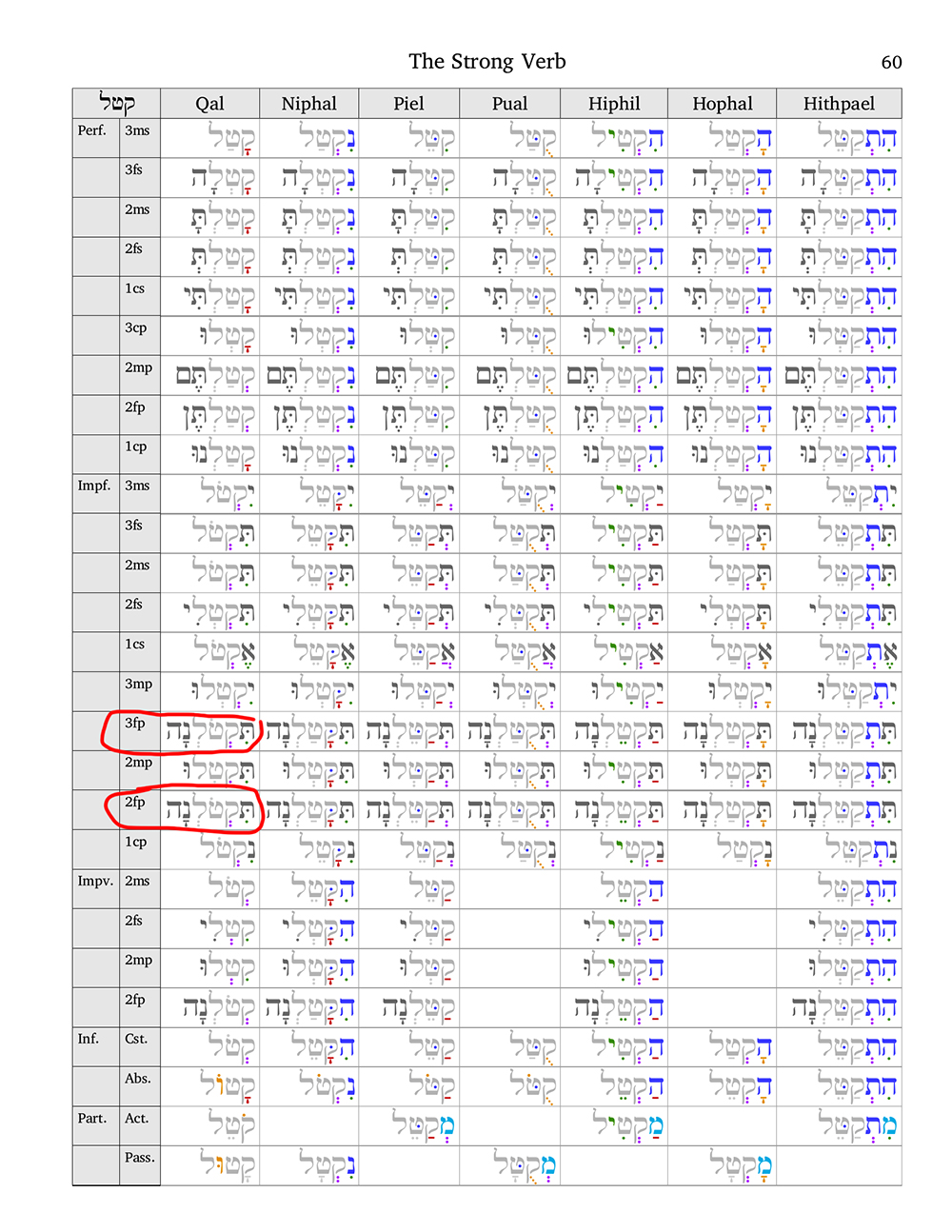 Genesis 3:17
Genesis 3:17

The Days of the Living Ones Eat in Grief
And he has spoken to each adam that You have listened to the voice of the woman of yourself, and she is eating from out of the Tree, whom I have charged you to speak, 'She is not eating from out of himself.' She who is cursed is the Ground of Adam ("Adamah") within the crossing over of yourself. Within an inner pain they [women] are eating, all the days of the living ones of yourself,
traveling through "barren lands," waterless places
And to Adam he said, Because thou didst listen to the voice of thy wife, and thou wilt eat from the tree which I commanded thee, saying, Thou shalt not eat from it; cursed the earth for thy sake; in labor shalt thou eat of it all the days of thy life;
And He said to the man, Because you have listened to the voice of your wife, and have eaten of the tree about which I commanded you, saying, You shall not eat from it, the ground shall be cursed because of you; you shall eat of it in sorrow all the days of your life.
And to Adam he said, “Because you have listened to the voice of your wife and have eaten of the tree of which I commanded you, ‘You shall not eat of it,’ cursed is the ground because of you; in pain you shall eat of it all the days of your life;
And to Adam he said, Because thou hast hearkened to the voice of thy wife, and eaten of the tree concerning which I charged thee of it only not to eat—of that thou hast eaten, cursed is the ground in thy labors, in pain shalt thou eat of it all the days of thy life.
Footnotes
| 140 | Strong’s #5668, עבורך avur-ka. This verb construct evolved into the preposition "for the sake of/because of." The word "עבור" (avur) is a participle passive/infinitive of עבר meaning to cross over. It would probably be more literally something like "crossed for the sake of" The suffix "ך" (kha), indicates the second person singular masculine possessive ("your") or in the case of a verb, the direct object. Prepositions often have suffixes, i.e. "from-you." This word has both a prefix and suffix: בעבורך. This form would literally translate "in the one who has passed over you" or "in the one who is across from/to you (masculine singular)." So "because of" or "for the sake of" is an interpretation of the construct. The construct עבור shows up around 70 times in the scripture. Lamentations 3:44 features a unique construct מעבור usually translated "passing through" but literally "from passing over." |
| 141 | Eating Garbage Grammar? Paragogic nun ending. Strong’s #6093, עצבון itstsabon. (inner) afflicted one, sorrowful one. Hebrew תאכלנה. they are eating (fem). The suffix "נה" (pronounced as "-na") in Biblical Hebrew is a feminine suffix. It can be either interpreted as "you are eating her" which is where the traditional interpration i.e. "you are eating of it" comes from, or properly as third person feminine plural incomplete "they are eating", or second person feminine plural incomplete "you all are eating." See the chart below. For example:
So, "נה" is added to verbs to match the gender of the subject when the subject is a group of females or a feminine noun. What scholars did here was to take the direct object suffix for "her" as "you are eating her" in a neuter sense "it" and then sneakily plugged in the word "of" to come up with "you are eating of it." It is not only strange to say "you are eating her" in terms of the Ground (hence why they add the words "of it"). The rendering "of it" breaks the rules of what a direct object suffix means. A direct object suffix, as they are interpreting it as, is a direct object suffix. It is not an indirect object suffix, hence, direct object suffix. Hebrew does not have or use indirect object suffixes. Indirect objects are always expressed with prepositions. This is Hebrew 101 level grammar. How to express properly the indirect object? It is quite easy, and the pattern of "eating from/of" (indirect) is used throughout this narrative. Not only that, the preposition מן (min "from out of" ) follows nearly every other instance of the verb "to eat" in the narrative. They are in effect leading one to believe there exists such a prepostion, i.e. "from the ground" when there does not. Here are all the instances:
Hebrew תאכל she is eating In Hebrew, the future tense conjugations for the second person masculine singular and the third person feminine singular forms of verbs appear identical, both written and pronounced. Therefore, "תאכל" (ta'akhal) could represent either "you (masculine singular) eats" or "she eats" depending on the context.
|
